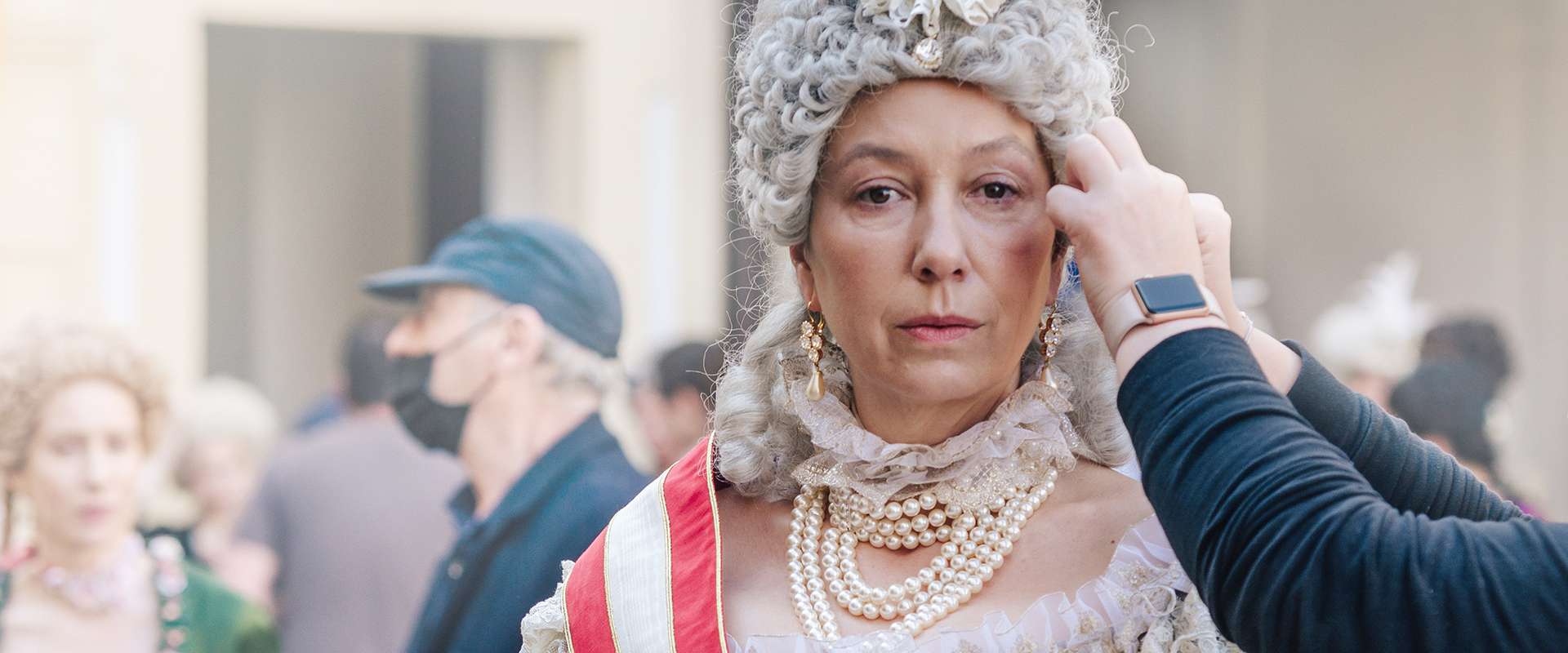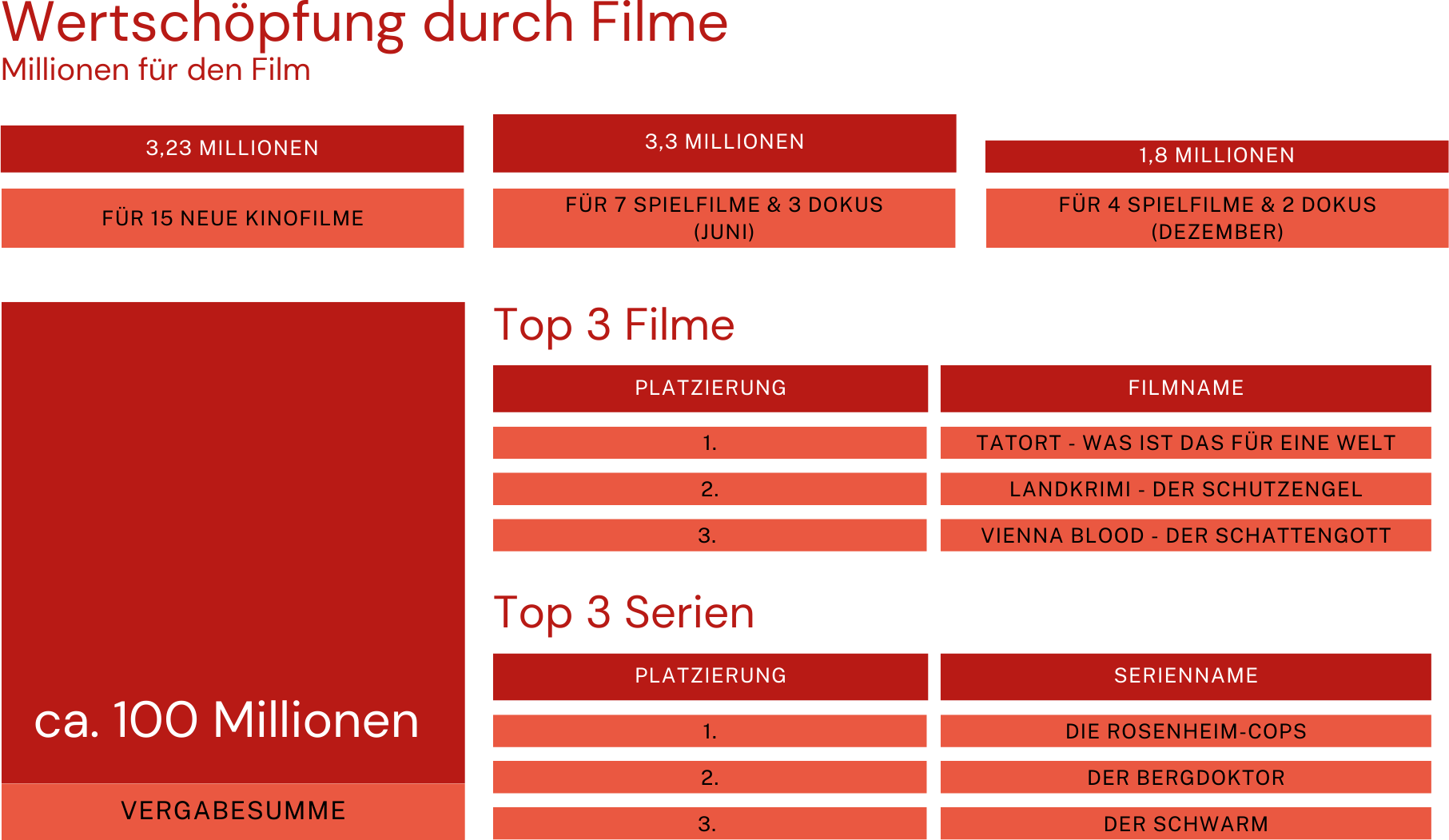
The answer is given by Michael Krön, head producer at ORF.
First of all: Without the ORF as a client in the film industry, there is no Austrian identity!
That sounds harsh, but it's true. If the ORF were to give up its role as a client and co-producer in the Austrian creative industry, this would have serious consequences in terms of content as well as the negative economic impact. Our culture, our language, indeed our attitude to life would disappear from the media and subsequently from our hearts and our lives. Products such as "Kaisermühlen Blues", "Kottan ermittelt", "Die Piefke Saga", "Die Vorstadtweiber" or "Braunschlag" would fall victim to German and international films and series. The above-mentioned programs fictionally and audiovisually describe the spirit of their time. This identity card would no longer exist. Over time, our children would "watch" and no longer "look", they would eat meatballs in buns and instead of China they would go to "Schina".
We have a responsibility towards our own culture to counteract this. And this can only be achieved with a lot of original Austrian content in all genres, fictional and factual.
For this reason, and as a guarantor and initiator of Austrian added value, ORF awards over 100 million euros annually for commissioned and co-productions that are concluded with Austrian film producers. This does not include pure purchases or technical services from companies based in Austria, although these funds naturally also flow into the Austrian film industry.
On average, the ORF invested around EUR 104 million per year in the Austrian film industry between 2018 and 2022. The sum for 2023 will also amount to over 100 million euros. ORF's funding enables fictional productions with an Austrian signature and creative output to be made at Austrian locations. In terms of films and series, these include the "Landkrimis", which are set in the individual federal states, "Die Toten von Salzburg" or "Die Toten vom Bodensee", as well as the "Tatort" episodes with Harald Krassnitzer and Adele Neuhauser, which are extremely popular with both Austrian and German audiences.
In the area of television series, there are productions commissioned purely by ORF such as "Biester" or "Walking on Sunshine", as well as co-produced titles such as "Soko Donau", "Soko Linz" or "School of Champions". In the area of co-productions, ORF's co-financing enables producers to obtain closed financing and thus also the opportunity to submit the production to film funding programs such as FISA+, the film funding program of the Federal Ministry of Labor and Economy, if the relevant criteria are met.
As part of the film/television agreement, ORF's co-financing also enables more than 25 Austrian cinema productions such as "Greece", "Pulled Pork" and "Andrea Gets Divorced" to be produced each year.
The ORF also finances animated films, films with an innovative character and short films through its innovation funding program to provide special support for young Austrian filmmakers.
ORF commissions also play an important role for the Austrian creative industry in the non-fiction sector.

The broad spectrum spans all genres - from entertainment with the early evening quiz shows "Q1 - Ein Hinweis ist falsch" and "Smart10 - Das Quiz mit den zehn Möglichkeiten", comedy, cabaret and satire productions by Austrian artists such as "Willkommen Österreich", "Was gibt es Neues?", "Gute Nacht Österreich" or the "Kabarettgipfel", the children's program or various talk formats such as "Stöckl." or "Barbara Karlich - Talk um 4", documentaries for the broadcasting series "Universum", "Universum History", "kreuz und quer" or "Dok 1", a large number of cultural documentaries and those about Austrian history, as well as commissions for magazine programs such as "Guten Morgen Österreich", "Studio 2" or "bewusst gesund". Every year, the ORF commissions over 150 Austrian producers for all of these productions. As the film industry in Austria is a comparatively small sector in which the vast majority of companies have fewer than 10 employees, the ORF plays a key role in the Austrian production landscape and the Austrian creative industry.
With its investment volume, ORF also provides a sustainable impetus for Austria as a film production location. This is particularly important for Austria as a business location due to the economic multiplier effect (e.g. through local consumer spending by the production teams or via tourism).
Productions commissioned or co-produced by ORF often make Austrian landscapes and regions better known abroad (e.g. "Der Winzerkönig") and thus also benefit Austrian tourism.
All in all, ORF's investments make it a very important economic factor, and in any case the country's biggest identity creator.
#nationalvalue